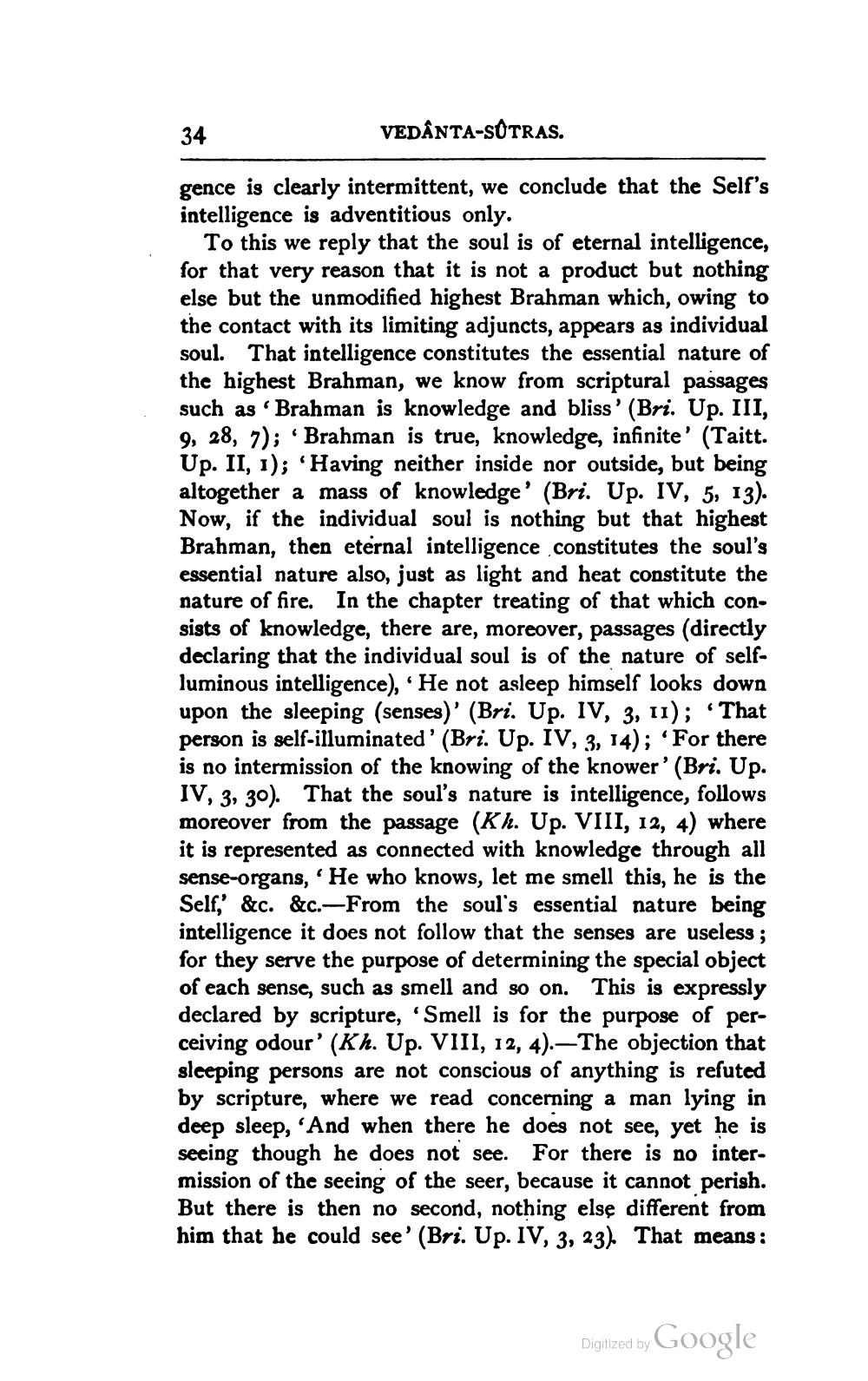________________
34
VEDÂNTA-SOTRAS.
gence is clearly intermittent, we conclude that the Self's intelligence is adventitious only.
To this we reply that the soul is of eternal intelligence, for that very reason that it is not a product but nothing else but the unmodified highest Brahman which, owing to the contact with its limiting adjuncts, appears as individual soul. That intelligence constitutes the essential nature of the highest Brahman, we know from scriptural passages such as Brahman is knowledge and bliss' (Bri. Up. III, 9, 28, 7); Brahman is true, knowledge, infinite' (Taitt. Up. II, 1); "Having neither inside nor outside, but being altogether a mass of knowledge' (Bri. Up. IV, 5, 13). Now, if the individual soul is nothing but that highest Brahman, then eternal intelligence constitutes the soul's essential nature also, just as light and heat constitute the nature of fire. In the chapter treating of that which con. sists of knowledge, there are, moreover, passages (directly declaring that the individual soul is of the nature of selfluminous intelligence), 'He not asleep himself looks down upon the sleeping (senses)' (Bri. Up. IV, 3, 11); “That person is self-illuminated' (Bri. Up. IV, 3, 14); 'For there is no intermission of the knowing of the knower' (Bri. Up. IV, 3, 30). That the soul's nature is intelligence, follows moreover from the passage (Kh. Up. VIII, 12, 4) where it is represented as connected with knowledge through all sense-organs, 'He who knows, let me smell this, he is the Self,' &c. &c.—From the soul's essential nature being intelligence it does not follow that the senses are useless; for they serve the purpose of determining the special object of each sense, such as smell and so on. This is expressly declared by scripture, 'Smell is for the purpose of perceiving odour' (Kh. Up. VIII, 12, 4).—The objection that sleeping persons are not conscious of anything is refuted by scripture, where we read concerning a man lying in deep sleep, 'And when there he does not see, yet he is seeing though he does not see. For there is no intermission of the seeing of the seer, because it cannot perish. But there is then no second, nothing else different from him that he could see' (Bri. Up. IV, 3, 23). That means :
Digitized by
Digilzed by Google




